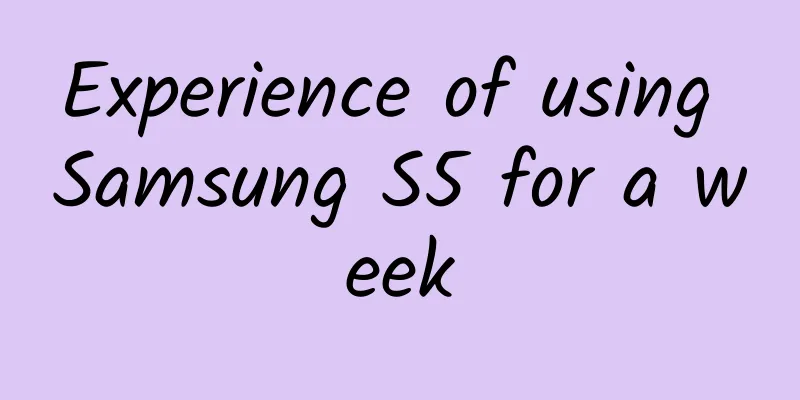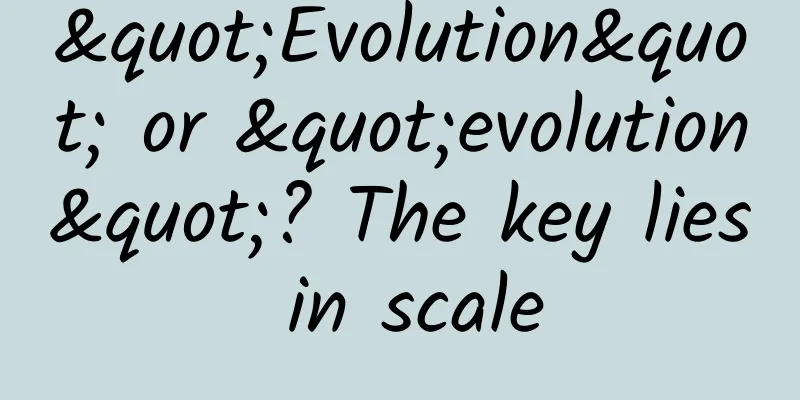Jobs after he disappeared from the limelight

|
This week, four years after Jobs' death, Hollywood once again brought his story to the screen. The last movie of the same theme appeared exactly two years ago, when the booming mobile Internet companies Uber and Snapchat had just joined the unicorn industry; but now it is bleak, and once-star companies such as Evernote and Dropbox have fallen. In the technology industry, everyone is looking for exponential growth in the boom era, but they have not discovered another interpretation of this law - exponential decline in the depression era. Most of the stories here are about young people becoming famous. Those young people rely on courage and wisdom to rise to the top of the mobile Internet wave; but after the wave passes, more people will have to endure the fear of free fall. They were called heroes in the past, but they will become losers in the near future. Now that winter is approaching and the wind has disappeared, what is the significance of Steve Jobs? Jim Collins is the author of the best-selling book "Built to Last". He established a deep friendship with Jobs while teaching entrepreneurship at Stanford University. Speaking of Jobs, he once used restlessness to describe his life. (Restlessness does not have an exact equivalent in Chinese, and can be interpreted as insecurity or restlessness.) Collins believes that insecurity is far more important than pure ambition and intelligence. It is the driving force of self-repair and self-drive. "Life is about rebirth and growth. Most great entrepreneurs are not born with talent, but a process of growth. In Steve, what I see is not a success story, but a story of growth." Perhaps this is the significance of Jobs in the current environment: he was successful at the age of 20, failed miserably at the age of 30, and was tepid in the next decade; just when people thought he was about to fade away, he returned to the spotlight at the age of 40, and in the age of 50 and the remaining 10 years of his life, he miraculously promoted the emergence of the next wave of technology. This is so much like a classic script, no wonder Hollywood screenwriters and directors are scrambling to bring his story to the screen. Therefore, those entrepreneurs who have only experienced early success at the age of 20 should cheer up and continue to be restless, otherwise they will only live in memories in the future. In Silicon Valley, Jobs seems to be everywhere, and it is easy to run into people who have had contact with Jobs. Geek Park has invited Jobs' partner Wozniak to China in the past; last year, it brought a group of Chinese CEOs to visit Apple's second CEO John Sculley (yes, the one who kicked Jobs out of Apple). Today, I want to write about the stories of two ordinary Silicon Valley elders. They are about the same age as Jobs, and their experiences in their youth were deeply marked by Jobs. One is Daniel Kottke, who met Jobs in college. They went to India to practice Buddhism and study Zen together. Jobs called him his soul mate. Later, he became one of Apple's earliest employees and helped Wozniak assemble the first generation of Apple computers. On the eve of the first IPO, he found that he did not get a penny of stock, so he parted ways with Jobs. The other is Randy Wigginton, who was Apple's sixth employee and the first software engineer. He wrote many applications for the first and second generation Apple Macs and later Macs. Let's take a look at what Jobs looked like in the eyes of his peers when he was in his twenties. Weird Entrepreneurs Randy Wigginton is 55 years old and has been an engineer for 40 years. He is still an ordinary engineer at the Internet company Square. He invited us to meet him at his company. His silver hair was so eye-catching in the elevator. Square is a famous unicorn company in San Francisco. Its founder is the famous former Twitter CEO Jack Dorsey, who was once ridiculed as a model Steve Jobs for his poor dress and speech. Randy's encounter with Jobs originated from the famous "Homebrew Club". Randy was fifteen years old that year and was an active member of the club. He was crazy about computers and hoped to build one himself one day. But because he was too young to drive, it became a hassle to attend the event. So after an event, Randy asked everyone who lived close to him and could bring him along every time. At this time, a short and fat man ran over and said he was willing to give him a ride every time. Randy was very happy and asked him what his name was. He said his name was Wozniak. In 1976, Jobs and Wozniak founded Apple, and Randy became the sixth employee and the first software engineer. He wrote Macwrite for the classic Apple 1, the first word processing program for Apple computers. Speaking of Jobs, Randy said: "He's not an easy person to get along with, but we all know he's very smart. He's the guy who owns one-third of the company but makes life miserable for the rest of the company." Randy recalled that although Jobs was the founder, he was not the CEO (Apple's first CEO was Michael Scott). Because he could not design, write programs, or manage, the first task assigned to the 20-year-old Jobs was to purchase parts. Even so, Jobs still did a mess. "We always laughed at him because he was always bargaining for the best parts. He made a lot of companies unhappy because he was always telling them: No, no, I need a lower price. Those companies would be unhappy, and then Jobs would argue with them, and it was a mess." As the only real adult in the entire company, CEO Scott tried to help Jobs grow, but Jobs's eccentric personality often caused them to quarrel. Scott tried to persuade Jobs to take a shower every day, and the two quarreled many times. Jobs believed that he only ate fruits, so his diet was very pure, so he didn't need to take a shower. Another time, Jobs wanted to put a few beanbags in the office, so he brought one to the office. Scott disagreed, and the two had another argument. To support his point and prove that beanbags were comfortable, Jobs jumped on his own beanbag, and it broke. "If you've seen what the inside of a bean bag sofa looks like, you'll know. There are lots and lots of tiny particles inside. Those particles are scattered all over the floor. Months later, you can still find these particles in the office," Randy said with a wry smile and shook his head. Jobs was a good engineer In stark contrast to Randy's engineer image, Daniel Kottke is cynical most of the time, and his teasing eyes vaguely show traces of his hippie life in his youth. He rode an old emerald green bicycle to the appointment at a Sichuan restaurant. Daniel told Geek Park that this Sichuan restaurant is part of Silicon Valley's history. Since the restaurant has large round tables, it is very convenient for engineers to discuss work while eating, so it is very popular. As Jobs' best friend in college, he was called his soul mate by Jobs. They traveled to India together and studied Zen together. When Jobs started his own business, Daniel naturally became one of the first people he invited to join. But unlike Randy, Daniel was not an engineer, but a technician. His salary was calculated by the hour, $7 per hour, and his job was to test motherboards. “I had to teach myself and experienced a lot of setbacks,” Daniel said. Daniel was soon promoted to senior technician. Even though he has an old-school hippie demeanor, Daniel occasionally says something very profound. For example, he said that Jobs was a good engineer, which subverted everyone's imagination because most people who worked with him, including Bill Gates, believed that Jobs was not an engineer at all. His explanation was this: Just like the car industry. There are many levels of design. The top level of design requires an understanding of everything below. It requires an understanding of what is possible. Jobs was very good at understanding what is possible. Daniel also used a small function of the iPod to prove his point. The storage system of the iPod is actually a small computer hard drive. Its biggest problem is that it is not resistant to falling. It will break if it is often taken to and fro. Jobs' solution is to add a sensor. When the sensor detects that the iPod is in a free fall state, the hard drive will automatically shut down. "He knows how to look at the problem from a big picture perspective and then let others do the specific work," Daniel said. A complex person (Daniel and Jobs show the first generation of Apple computers at a trade show) Daniel also said that Jobs was a complex person. "When I first met him, Jobs and I both loved thinking, and we saw ourselves as young scientists. The book we brought to India was The Way of Zen, which is a classic. When we read about miracles in the Autobiography of Yogi, we were skeptical of these descriptions. Zen has nothing to do with miracles, but with the truth of nature. Jobs and I liked these theories very much. One of the ideas in Zen that Jobs liked very much was: seeing everything clearly, simplicity and elegance. Think about it, isn't Apple's products like this? The elegant and simple product concepts all come from Zen. Daniel also believes that Jobs' complexity is reflected in the completely different empathy he showed when dealing with friends and products. He has a strong empathy for consumers. This is a very contradictory thing. Because when he deals with people, he has little empathy. When I talked with Alex Gibney (a famous American documentary director), I also mentioned that he is a very contradictory individual. Because everyone knows that he is not good at understanding the people closest to him, but when it comes to product design, he understands users very well. Unfortunately, his empathy did not show up in friendship. As a friend, Daniel was hurt by many of Jobs' words and deeds. The two were roommates. Once, Jobs hid some gold coins in his closet, and then they disappeared inexplicably. Jobs found Daniel and asked him if he had stolen the gold coins. This hurt Daniel because there were other people living in the room, but Jobs was the only one who suspected him. "He's just too complicated," Daniel concluded. After Apple was founded, he was no longer a friend to anyone. Daniel's friendship with Jobs became complicated when Apple went public in 1980. Although he was only an hourly mechanic, Daniel believed that as an employee who had joined Apple since its inception in the garage, he should have received stock. However, Daniel did not receive a penny. This incident was written into the 2013 Steve Jobs movie. “There’s a scene where we’re preparing lunch in a restaurant, but that never actually happened.” (Daniel's image in the previous Steve Jobs movie) The truth is that Daniel wanted to talk to Jobs. He wandered around the door of Jobs' office many times, but was repeatedly rejected. Daniel learned from his former boss ten years later that the former boss had asked Jobs about Daniel's stock, but Jobs said categorically: Zero, no stock. In sharp contrast, after Wozniak learned about this, he took out stocks worth millions of dollars and distributed them to Daniel and some other early entrepreneurial partners. After that incident, their friendship came to an end. In addition to Daniel, many early entrepreneurial partners, including Wozniak, complained about Jobs' ruthlessness. "After Apple was founded, he was no longer friends with anyone," Daniel told Geek Park. The relationship between the two broke down completely in 1982. That year, Time magazine planned to do a cover story on Jobs. When the reporter interviewed Daniel, he revealed that Jobs had an illegitimate daughter. Jobs almost cried after reading the report and cursed Daniel for betraying him. From then on, the two never spoke again. Regarding this matter, Daniel said he did not regret it. "I can't imagine my friend denying her daughter's existence. I have no regrets." postscript In my career as a journalist, I often noticed that when the interviewees talked about themselves, they would always magnify their successes and downplay or keep silent about their mistakes. This is not because these people are ambitious, but because of human nature. In addition, people's understanding of themselves is always limited, and their own understanding of themselves and the world's understanding of them are sometimes very different. At this time, the best way is to find the people around him. In this way, we can restore a flesh-and-blood person. Was Jobs a genius, or was he made up of a series of experiences? From the story above, we can easily choose the latter. Jobs once said: Innovation is about putting things together. When you ask creative people how they innovate, they may feel a little guilty because they didn't create anything. They just saw something. The deeper and broader our understanding of the human experience, the better our designs will be. |
<<: With limited resources, how can entrepreneurs make a good App?
>>: A female programmer used code to send humans from the earth to the moon
Recommend
Can you judge the taste of lotus root by looking at the number of holes? These 3 tips for selecting lotus root are crucial, but many people don’t know them!
gossip Lotus root is known as "China's s...
Microsoft WP survival dilemma: mobile phone manufacturers publicly abandon the brand or it will disappear
The gap between WP and Android and iOS market sha...
The best daily ratio of sitting, standing, sleeping and moving time is revealed! Follow this to stay healthier
Everyone knows the principles of "combining ...
Baidu Double 12 Marketing Guide
Double Eleven has just passed, and we are about t...
Offline event planning and traffic diversion skills!
Nowadays, the Internet dividend period has long d...
Why is the rarely seen Yunnan Paulownia endangered?
Recently, researchers discovered a rare and endan...
Case review + fission methodology | Why is your fission activity ineffective?
The fission gameplay template is important, but w...
How much does it cost to customize a small business program in Yangzhou?
The launch of mini programs has brought convenien...
How much does it cost to produce the Tianjin Automobile Mini Program? Tianjin Automobile Mini Program Production Price Inquiry
Mini programs provide convenience for publicity a...
Insights | The secret to staying happy: Don’t get upset or argue
Famous Artists Gallery | Henri Matisse, a famous ...
Earn 10,000 yuan a day from illegal income? What are some ways to make money quickly in a day?
He said he has 760,000 QQ groups, but QQ groups d...
Thai fragrant rice = local rice + essence? How to choose the real "fragrant rice"?
Last night's 3.15 Party featured a number of ...
How to master the activity operation planning of financial products?
Event planning ability is a standard requirement ...
Yu Rongguang resume: What are the functions of sitemaps and robots files?
For a complete website, it will basically be equi...
User Operations | Why do users have pain points?
What are the real pain points of users? Why do us...









